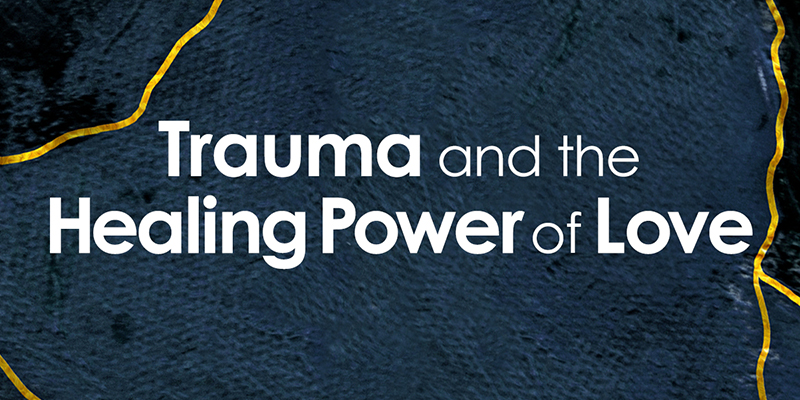RESOURCES TO GROW INNER STRENGTHS FOR
Trauma
Trauma and stress-related disorders are on the rise.
PTSD, Childhood Trauma, and Traumatic Experiences all stress the nervous system, and can seriously affect daily functioning and well-being.
We can learn to acknowledge whatever’s happened in life, while finding the courage, agency, and skills to effectively recover from traumatic experiences. Using skills such as mindfulness and meditation, and drawing upon the plasticity of the brain, we can not only manage symptoms of trauma, but find our way back to health and well-being.
FREE VIDEOS
Healing Trauma
FREE READS
Simple Practices for Healing Trauma
Being Well Podcast Episodes
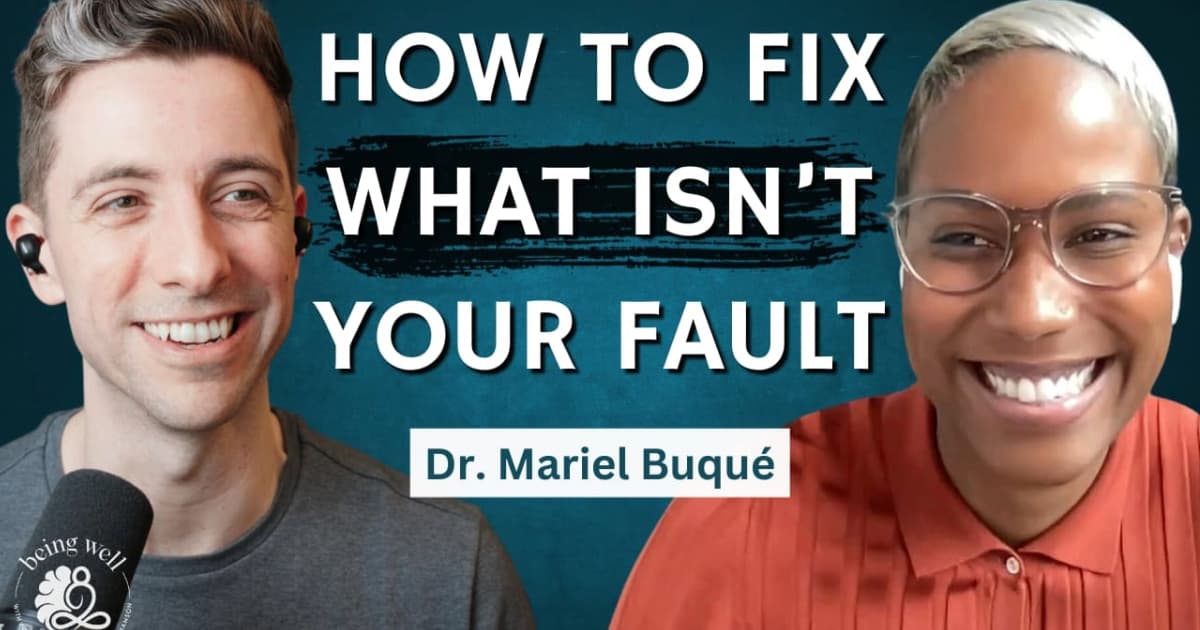
Being Well Podcast: Healing Cycles of Trauma with Dr. Mariel Buqué
Dr. Mariel Buqué joins the podcast to help us learn how we can heal from the past, create healthier patterns, and break cycles of trauma.
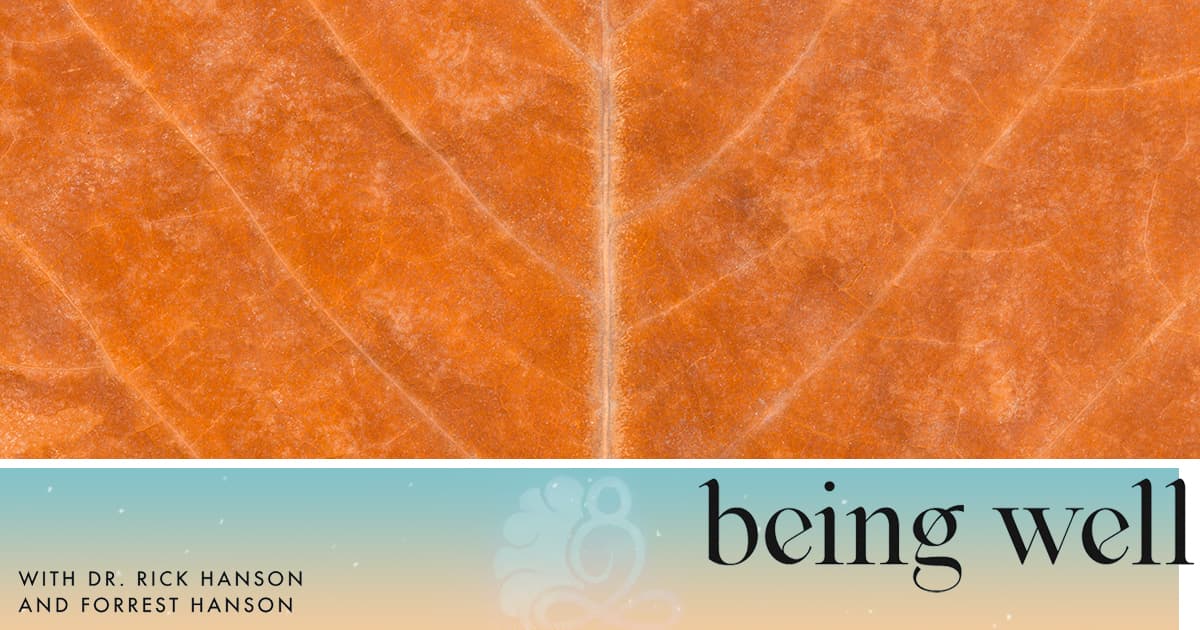
Being Well Podcast: The Polyvagal Theory and Recovering from Trauma with Dr. Stephen Porges
Dr. Stephen Porges walks us through how lessons from polyvagal theory can be applied to recovering from traumatic experiences.
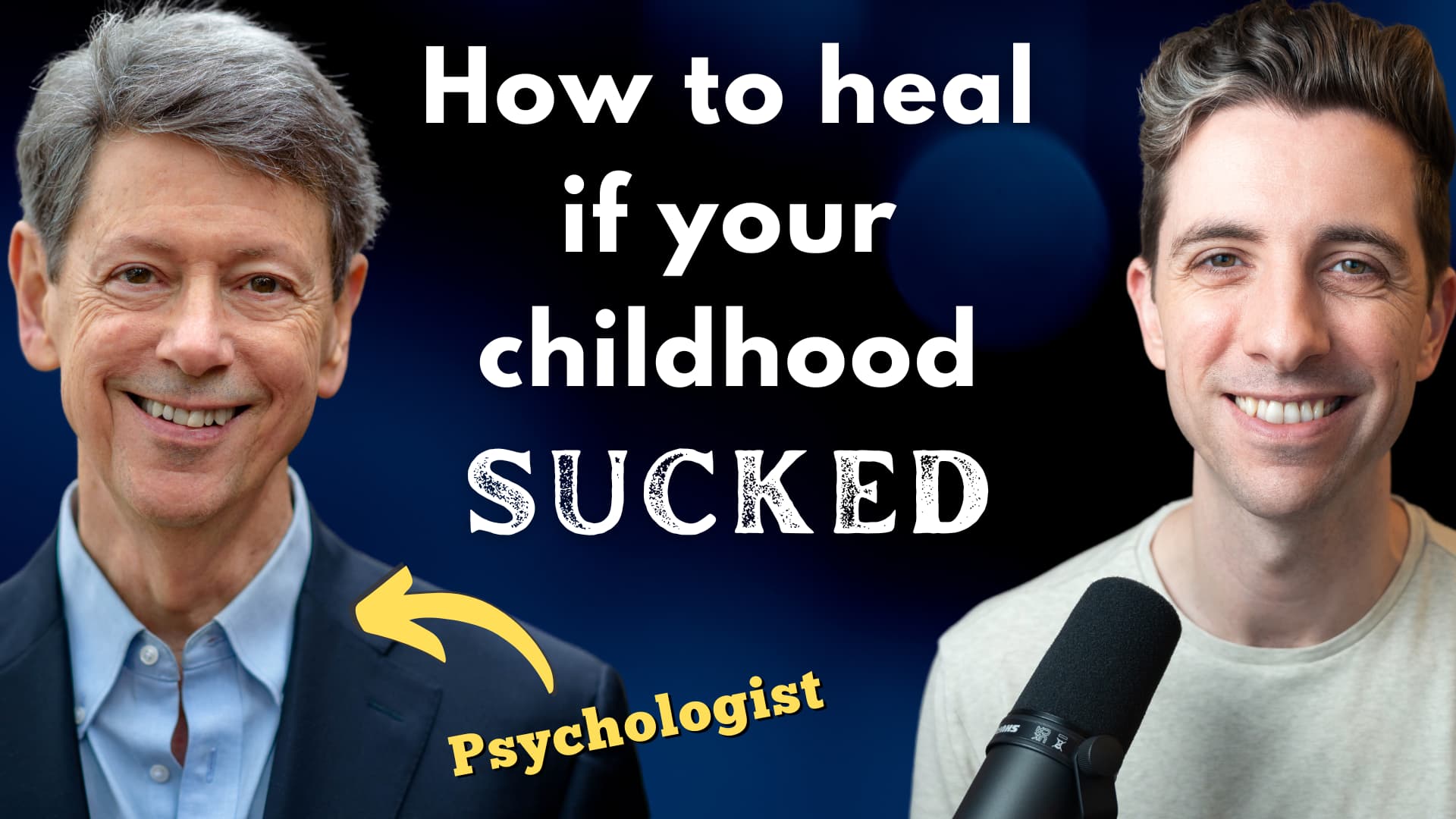
Being Well Podcast: Recovering from a Challenging Childhood
Recovering from a challenging childhood as an adult can be a difficult process, which is what we explore on this episode.
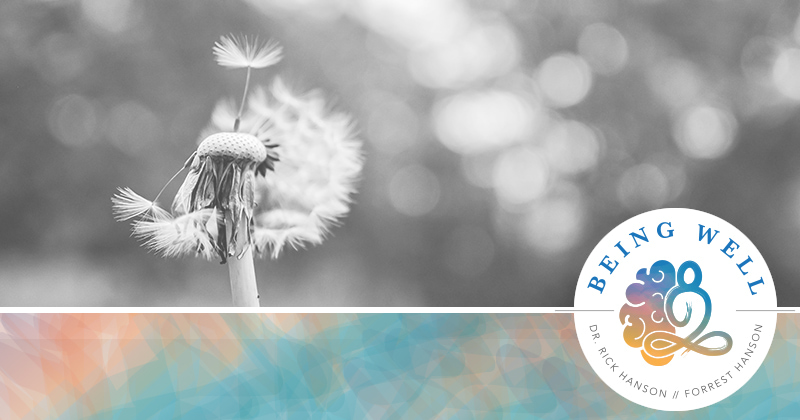
Being Well Podcast: Stephanie Foo: Complex PTSD and Learning to Live With the Past
One of the most fascinating aspects of the mind is how most of what’s going on in it lies outside of our awareness. In this episode of the Being Well Podcast, Forrest and Dr. Rick explore the unconscious mind and the material we might find there. They talk about what the unconscious mind is, the purpose of the unconscious, repression, and what we can do to access, use, and release that unconscious material.
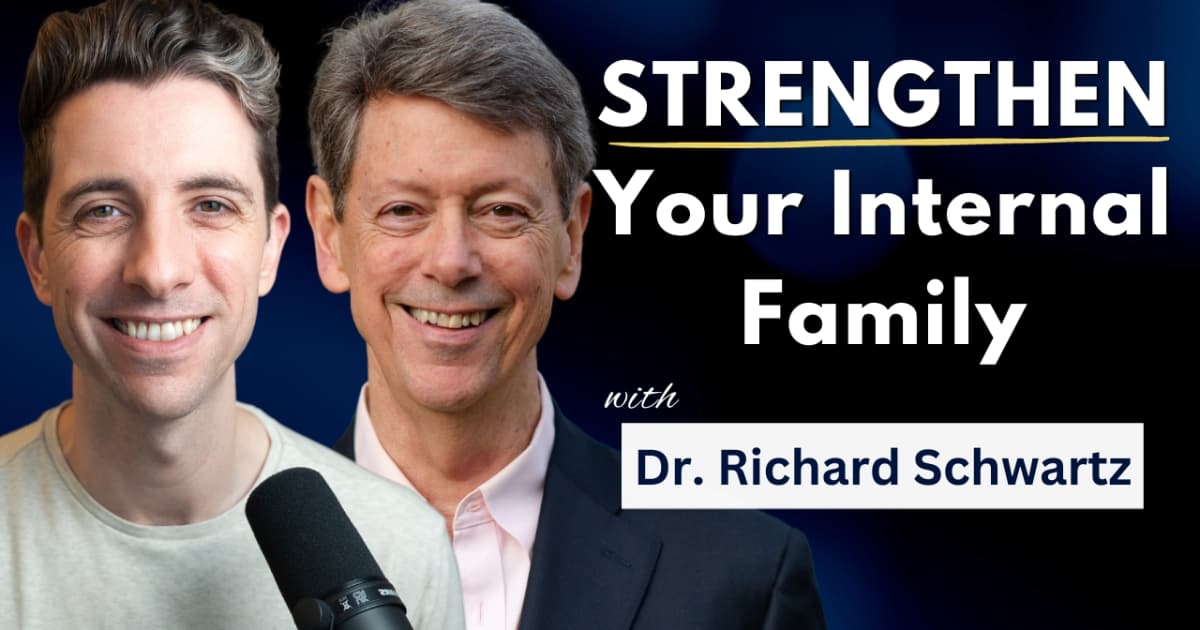
Being Well Podcast: Internal Family Systems: Healing Trauma and Restoring Wholeness with Dr. Richard Schwartz
We’re joined by Dr. Richard Schwartz, creator of the Internal Family Systems model of therapy, to explore how we can integrate all the aspects of who we are.
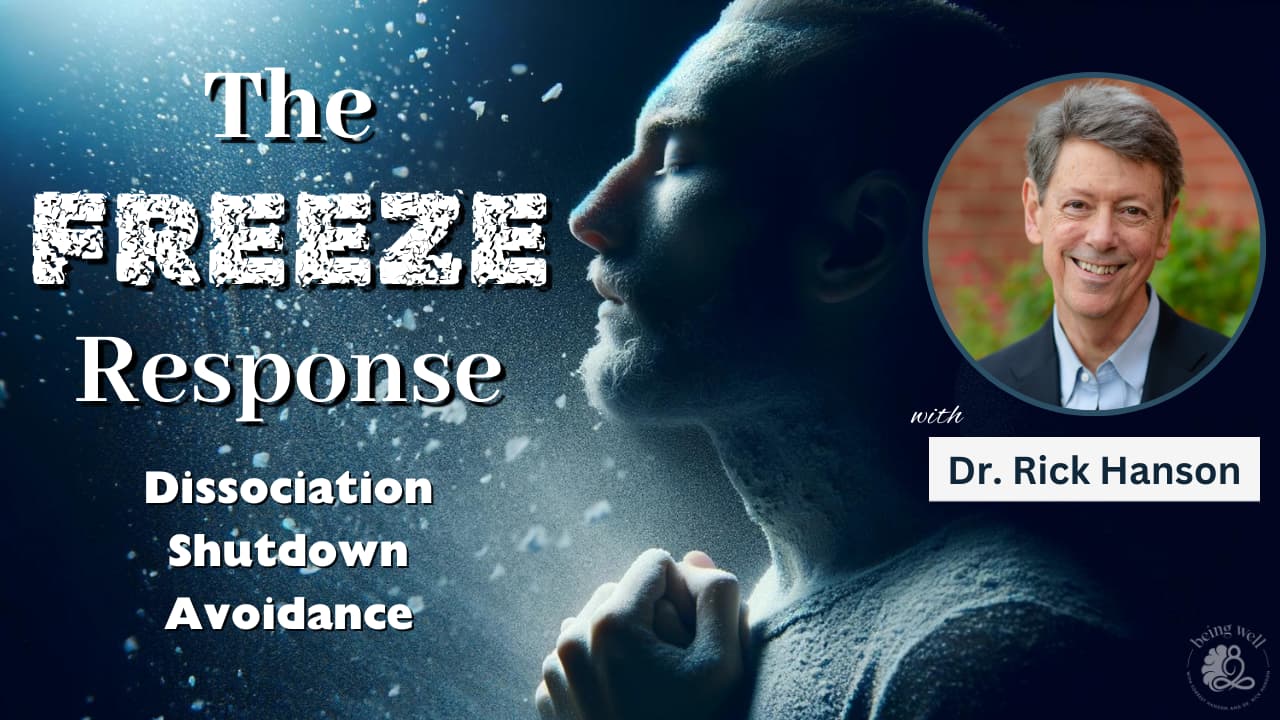
Being Well Podcast: Managing the Freeze Response: Dissociation, Emotional Shutdown, and Creating Safety
In one of our favorite episodes to date, Dr. Rick and Forrest explore managing the freeze response in detail.
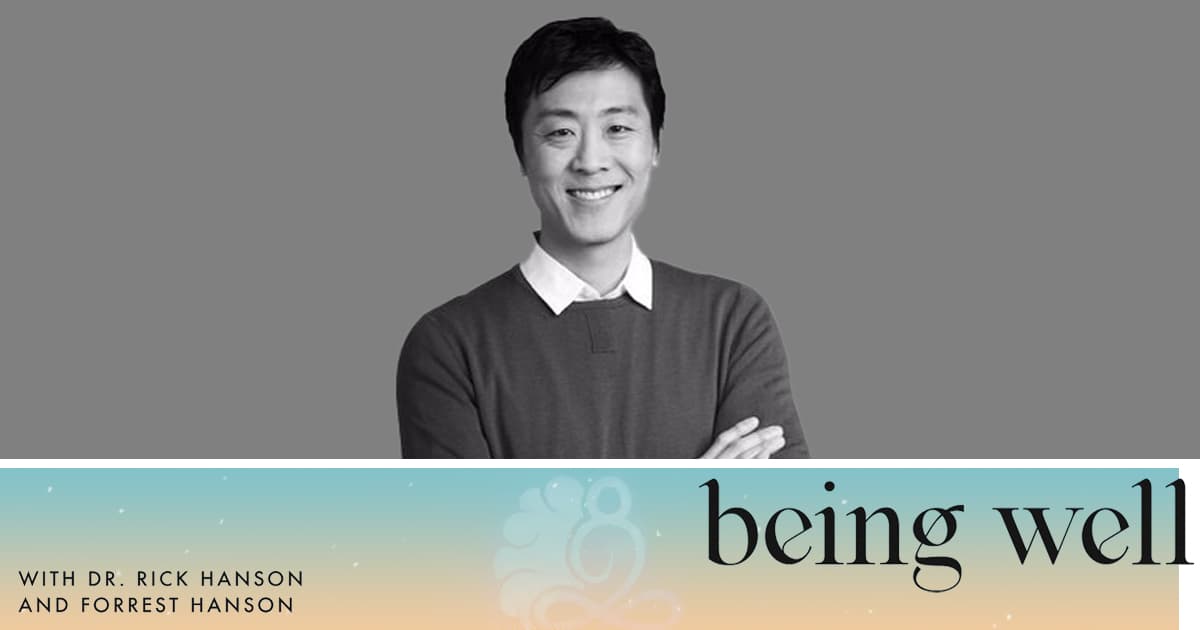
Being Well Podcast: What Really Helps Trauma? with Dr. Jacob Ham
In one of the most interesting conversations we’ve ever had on the podcast, clinical psychologist Dr. Jacob Ham explores what really helps people work with – and be with – trauma.
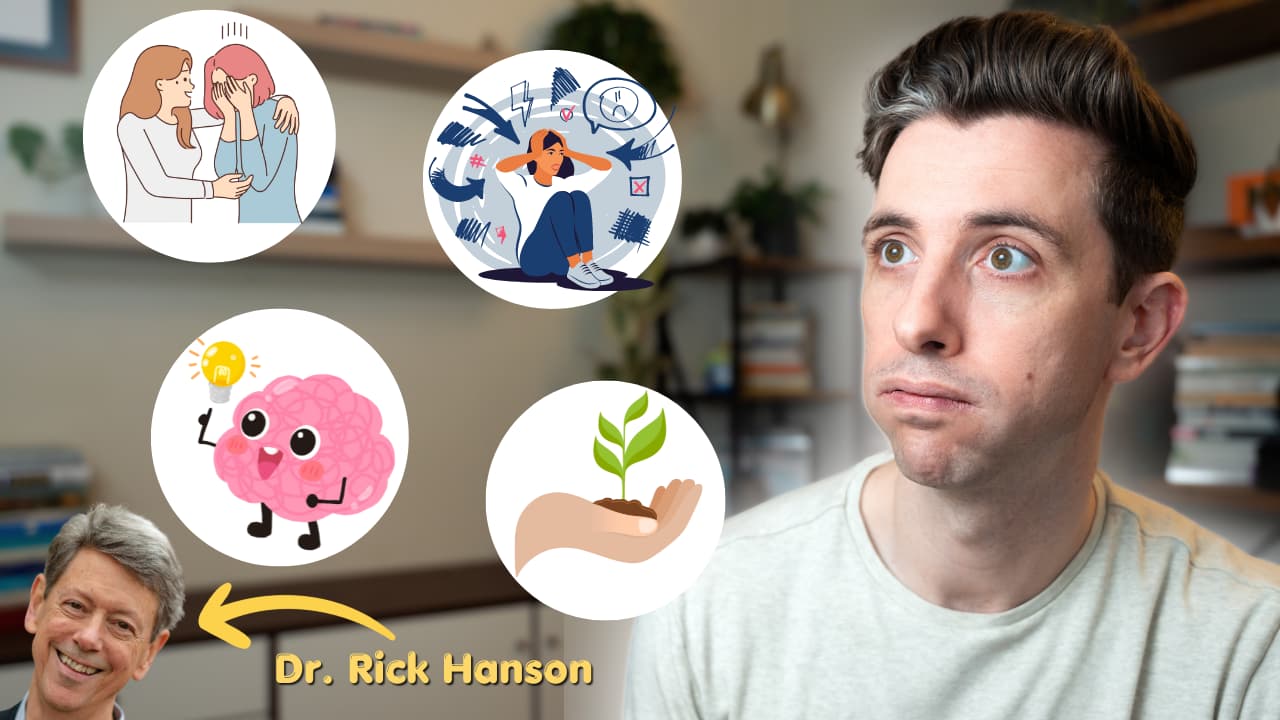
Being Well Podcast: Dealing with a Mental Health Crisis, Trauma and Meditation, and Getting Back on the Wagon: January Mailbag
Forrest and Dr. Rick open up the mailbag to answer questions from listeners. How can we understand and support someone going through a mental health crisis? Is meditation enough to heal trauma? And what can we do about family members that just won’t change?
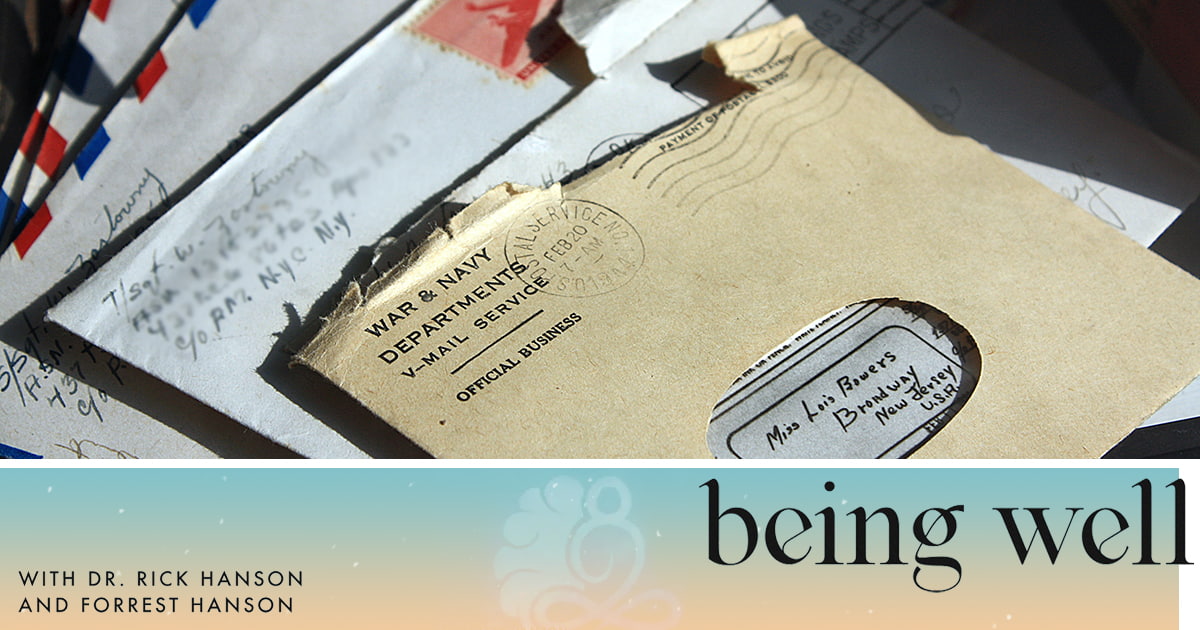
Being Well Podcast: Childhood Trauma, Self-Sabotage, and Therapy: September Mailbag
Dr. Rick and Forrest open up the mailbag and answer questions from listeners focused on getting the most we can out of therapy, processing old painful experiences, and sabotaging ourselves.

Being Well Podcast: The Science of Stress with Dr. Elissa Epel
Dr. Elissa Epel joins us to explore the science behind the stress response, different forms of stress, what separates “good” stress from “bad” stress, how we can take advantage of good stress, and dealing with existential forms of stress like the climate crisis.
Online Course
Trauma and the Healing Power of Love
Learn experiential practices for building up a strong sense of love and support inside yourself so you can start accepting and healing from past wounds.
Frequently Asked Questions

Psychologist and Author Dr. Rick Hanson answers questions about
Healing Trauma
You emphasize how we can grow through positive challenges. But posttraumatic growth – appreciating how transformative suffering and life disruption can be – is also important, don’t you agree?
You’re getting at the question of emphasis and different people will make different choices about that.
Personally, I acknowledge post-traumatic growth, and it is a fraught concept. For example, talking about the ways that the notion of posttraumatic growth can be used to tolerate structural features of racism and poverty, and abuse and mistreatment.
More generally, it seems clear that multiple things are true:
- People can grow from painful, harsh, even traumatic experiences – and this growth can be profound for a person, and transformative.
- People can also not grow from such experiences, in many, perhaps the majority of cases; they only suffer from these experiences and are injured by them in lasting ways.
- Distinct from trauma, most of the everyday suffering that people experience has no beneficial impact. It is just stress, sorrow, weariness, anxiety, frustration, and unfulfilled longing. It is pain with no gain.
- The growth that can occur from traumatic experiences requires positive experiences (e.g., self-compassion, insight) and positive psychological resources. Without those positive elements, there is just trauma.
- The acquisition of these positive psychological factors – beneficial for the vast range of events and experiences, not just for trauma – mainly involves emotionally positive experiences.
This is the big picture, and it is the one I particularly do not want to brush over.
What can I do if I get flooded with thoughts or painful feelings, even traumatic ones, when I try to meditate?
It’s important to build up inner resources for meditating. Buddha’s Brain focuses on inner resources, especially the fourth chapter on taking in the good.
A quick suggestion would be to find something that is reliably comfortable and peaceful in your experience – such as the breath, or an object of beauty, or a saying – and use that as your meditation anchor. Maybe while standing or walking, to reduce the dissociation. And keep disengaging from painful thoughts; don’t fight them, ignore them. And from time to time look at them categorically; in other words, see their nature, the nature of all experience, all phenomenology: transient, made of parts, arising and passing away due to causes, insubstantial, an unreliable basis for lasting happiness; seeing them in this way, they have less weight.
How can one express, feel and process "negative" emotions associated with an experience thoroughly and not create and strengthen "negative" neural pathways associated with those experiences at the same time?
Basically, three things are simultaneously true:
- Being with and letting go of an experience – in a mindful way, spacious, disidentified way – does not reinforce it and in fact helps to release it. “A healthy cry” is a beautiful, vastly important thing
- Being identified with our negative reactions and marinating in them reinforces them
- Positive experiences are not “learned” efficiently so it’s useful to deliberately sustain and internalize them
The points you raise are right at the intersection of key questions in working with trauma: does revisiting the material reinforce it or release it? Check out my slides and talks about the ways to work with the mind.
I've experienced emotional abuse, a serious brain injury, PTSD, anxiety, and depression – and I find it hard to meditate. Any suggestions?
In terms of things that might help, I’m assuming you have done sensible standard things like therapy. In terms of some options that might be helpful, you could look into:
- Neurofeedback
- Sensorimotor training (e.g., Baniel Method, Feldenkrais)
- Functional medicine type assessment of your overall physiology, and then systematically optimizing it as best you can
- Using an emotionally positive and stimulating object of attention for meditation – such as love for others, contentment, gratitude, bliss after pranayama – and marinating in happiness, both to help steady the mind and to potentially help tip your brain more toward positivity
And of course, keep knowing and feeling your own obvious goodness.
How would you recommend dealing with repurcussions of trauma?
I recognize the issue you raise and usually speak about it in workshops with therapists. Some people need to resource themselves initially (e.g., greater mindfulness, self-soothing, distress tolerance) before deliberately activating and installing enjoyable experiences. Of course, people can use the methods of positive neuroplasticity in Hardwiring Happiness to accelerate the internalization of these foundational resources.
I suggest moving away from the word “good,” which I’m doing more and more myself in my languaging of this material. I use “beneficial” or “useful” or “experiences of an inner strength.”
How do people who have experienced trauma as a child practice with the "child-like state"?
The essence of this practice for me is an attitude of sweetness and gentleness toward the younger parts of myself. It’s not so much that I imagine a complete, younger personality inside myself, but that there is a tenderness, understanding, encouragement, and good humor aimed at my softer, younger, needier, more vulnerable, more child-like layers deep down in my psyche. This attitude/feeling is aided sometimes by visualizing or remembering myself as a boy, but that act of imagination is more a way to call forth the sweetness I’m trying to cultivate than the presumption of a coherent little kid deep in my psyche.
Integrating more playful, child-like tones or qualities into your adult life, plus finding compassion and respect and caring for the younger parts in yourself will serve you well!
If a childhood trauma was the root cause of a current source of behavioral anxiety, then how do I deal with unlocking it?
Let’s start by presuming your insight about the root experience/trauma is accurate. There could also be other factors, such as a general inclination toward anxiety, or not much internal sense of protectors or other resources to deal with threats that might “get you.”
In addition to obvious other resources (e.g., psychotherapy), in terms of what I might suggest, you should try the first three steps of HEAL (see my free online resources and/or Hardwiring Happiness) for this, including “key resources” such as feeling protected, sense of grit, seeing threats accurately, and so on.
Building on cultivating inner resources for this issue with just the HEA (Have, Enrich, Absorb) steps, you could try the Link step, in which you hold in awareness at the same time both a relevant “positive” resource (e.g., feeling protected, sense of grit) along with some of the “negative” material (e.g., fear of being injured). Remember to keep the positive bigger in your mind and drop the negative if you get sucked into it. This Link step could be especially useful.
Could focusing on the resiliency of a person be similar to bringing up a positive experience and pairing it?
The key is to bring up a rich experience – in this case of a nurturing being – whether it is someone today or someone from the past when the trauma occurred. Just remembering that someone was helpful in the past (you didn’t say this, I am just mentioning this here for clarity) would not have the same impact in implicit memory as bringing up the experience of that soothing in the past, or an experience of soothing here and now.
So I don’t think there is an inherent distinction in the power of experiences of past or present soothing/resilience: past or present could be more or less powerful depending on other details. For example, when I bring up the felt sense of people in my childhood who were really for me, even though that emotional memory is less intense than that of my wife’s support for me these days, in some ways it (the childhood memory) goes deeper since it happened when I was a kid.
My own process is to feel the pain for sure, held in a big open space of awareness when I can, but also really focus on internalizing positive resources (mainly from positive experiences); check out the material on my website on taking in the good. In other words, be with the weeds in spacious mindful awareness while also diligently planting flowers in the garden of your mind/brain. Over time, the flowers will gradually crowd out the weeds.
What suggestions do you have for recovering from a head concussion?
I am no specialist in head injury, but what I have seen myself or heard from people with more experience includes:
- Take a concussion really seriously.
- Avoid any further blows to head, even seemingly minor ones.
- Work with licensed, experienced professionals who really listen to you and take the concussion seriously.
- Explore neurofeedback.
Overall, treat your brain with kid gloves, such as minimize stress, prevent or reduce inflammation in general, eat brain health foods (e.g., refined fish oil or flax oil), avoid toxins (e.g., stand upwind when pumping gas), and encourage authentic emotionally positive experiences.
I suffer from GAD (generalized anxiety disorder) from a trauma I sustained. What can I do to calm my nervous system and activate the parasympathetic nervous system?
Overcoming trauma can be difficult and here are some options that may help (some of which you might already be pursuing):
- Take good care of your body. When a person does mental interventions with limited results, that naturally suggests a focus on the “hardware.” Options include exercise, nutrition, “nutraceuticals” (e.g., 5-HTP), a general health check (e.g., thyroid, other hormones, anemia), and possibly medication.
- Really really repeatedly “take in the good” of experiences of calming, relaxing, recognizing that you are alright right now, protection, safety, and support. Use the Foundations program resources, especially the Learning and Calm pillars, also my book Hardwiring Happiness. The brain needs repetition, but with repetition it really will learn and change for the better.
- Emphasize self-compassion. Check out Kristen Neff and Christopher Germer.
- Try biofeedback based devices/programs like Heartmath to train your body (e.g., heartrate variability, vagal tone) to be calmer.
- Try mindfulness, including brief practices such as with Headspace.
Most of all, be reassured that you really can feel better. It will take work, but altogether what I have written here is less than half an hour a day (of course, you can give it more time if you want), plus the work itself is sweet: it feels good to do it, and you can know that you are really helping yourself along the way.
How can someone deal with cruelty, in their mind? How can one stop the mind from ruminating on horrible images of violence, without going back into denial?
First, I share your concerns about hurting other beings for one’s own pleasure.
Second, in a sense you are speaking about trauma in general and how to clear it from the mind. This is a big topic, and I’ll just say here a few things that might help:
- When the painful imagery or related thoughts arise, willfully shift attention elsewhere, especially to things that are stimulating and engage attentions, such as jumping up and down, eating something good, or giving/receiving love.
- Focus on the emotions and sensations of compassion, drawing awareness away from imagery or inner speech.
- Remind oneself what one is doing to help things get better; engage attention to this in rich ways such as reviewing actions or interactions and feeling what’s good about them (not just having an idea that one has sent money to a worthy cause).
- Have confidence that over time painful imagery does tend to fade or at least not preoccupy one, though it can still get triggered.
- If it helps, try EMDR or related trauma therapies.
- You might be able to get value from the Buddhist teaching about the emptiness of all experiences, no matter how wonderful or awful.
Experiences exist in some sense, but they are transient, insubstantial, made of parts, and arise due to causes, and therefore they are “empty” of absolute self-existence. In a sense, they are like clouds, not bricks.
How do I find the “right” therapist to help me overcome PTSD?
A lot of modern people have been traumatized and there are now a lot of good treatments and therapists who work in this area. Here are a few criteria and suggestions for finding help with trauma issues:
- Google searches often turn up good people. Contact a few who meet your criteria and get a call back with one or more therapists.
- I’d want someone experienced that was smart, nurturing, aware of mindfulness, and focused on results.
- The work of Peter Levine and Pat Ogden on healing trauma is excellent; they have trained many therapists in their methodologies.
- Eye Movement Desensitization and Reprocessing (EMDR) is a treatment used to alleviate the distress associated with trauma. There are many therapists and psychologists trained in this method.
- Contact the referral lines of the associations of psychologists or other kinds of licensed therapists in your county or state.
- Also check for any underlying physiology to make sure there is not an imbalance dragging down mood and flattening the results of psychological interventions. People trained in functional medicine can offer a fine-grained assessment and evidence-based interventions.
Which is the better approach for people suffering from trauma or oppression: a “top-down,” “positive psychology” approach that deals with mind, or a “bottom-up,” “somatic” approach that deals with the body?
For sure, experience, learning, residues of racism, trauma, etc. are all stored in the body, usually involving the nervous system, often entwined with other systems (e.g., musculoskeletal, immune).
Some of this learning – broadly defined, including the acquisition of learned helplessness, internalized oppression, insecure attachment, etc. – can be clustered in meaningful ways, such as all the various internalized consequences of oppression.
We can get at that material through various psychological (i.e., mental) interventions including bringing awareness to aspects of the body. Some of these interventions will be “top down,” like focusing on unearthing needlessly self-critical thoughts. Other mental interventions will be “bottom up,” like sensing into the pelvic floor and relaxing and releasing buried tension there. We can also get at this material through behavior, in other words, through action – including moving the body, power-posing, yoga, psychodrama, etc., and through hitting the streets, demonstrating, speaking truth to power.
Mental interventions can improve the effectiveness of behavioral interventions, and vice versa. Behavioral interventions are not better than mental interventions and mental interventions are not better than behavioral interventions. And many general-purpose mental and behavioral interventions (e.g., developing self-compassion) that are not specifically targeted at a particular “cluster” or kind of material (such as the impacts of oppression) may still help develop psychological resources (inner strengths) that are useful for that particular material.
People who single out any one of these factors of healing and growth as “not as good as” another kind of factor are missing the point. For a particular individual with a particular issue in a particular situation at a particular time: a particular package of methods could well be optimal – perhaps more tilted toward mental interventions or more tilted toward behavioral interventions. But the value of those particular interventions for that particular person does not mean that there is anything wrong about the other interventions or that they are not useful.
“Positive psychology” has not systematically swerved away from dealing with oppression any more than family therapy, humanistic psychology, or psychoanalysis has swerved away. Fields of psychology or mental health or human potential or spirituality have a general focus by their nature.
Critiquing them for not focusing on a specific issue such as oppression is misguided.
To address oppression, we need to deliberately focus on it and bring to bear all the methods, all the factors, listed above, as well as many more at the level of relationships, groups, and societies. I think this is what we should focus on! Roll up our sleeves and use all the tools and get to work!
My dilemma is wanting to love my parents but being scared of them. What to do?
What I might offer is that one approach is to experience your own lovingness (compassion, kindness, benevolence) as a kind of field radiating from you that includes all beings independently of who they are or what they do. Then your lovingness can also become more individualized depending on the person – leading to more or less closeness with them. But your lovingness itself can be unconditional. Besides the benefits to others, this approach can feel very self-nurturing and uplifting.
Can you help me with the tremendous feelings of pain/guilt/helpflessness I feel because of the trauma my nation lives with?
Survivor guilt…moral injury…these terms are useful but the heart wrenching experiences you have go much deeper. I speak from lots of privilege and good fortune, so it is very respectfully that I say that I see tremendous variety in the day-to-day experiences of 7+ billion people: for some it is full of suffering, for many it is sort of OK, and for some it is full of happiness. The suffering of some does not change the happiness of others, and vice versa. If those who are happy made themselves suffer, it would not lessen the suffering of others. In fact, happiness and well-being are strengths that can be used, if one is moral, to help those who suffer.
Up to you, but for me the path combines compassion…and equanimity. And it allows each of us to find the happiness we can while we do what we realistically can to help others.
I’d like to mention a book that came across my desk recently, Healing Collective Trauma by Thomas Hubl. You might find some useful things in it.
Also, as I feel your big heart in your words, it occurs to me that shifting your attention to compassion and love when you feel heartsore about your beautiful country (distinct from its oppressive rulers), and really resting in love, taking love as a meditation object, taking love as where you dwell…well, this might be helpful too.
Will you share some insight on how to deal with grief?
It seems that there are several points to balance:
- Grief has its own organic rhythm, its own waves. We just need to ride them with mindfulness and self-compassion. Over and over. There is no schedule to the end of the waves. After a while they do fade, though. Always.
- Allowing the falling apart can help. Knowing that all eddies disperse, eventually. Knowing that everything has shadows – many terrible things have happened in the past and will happen in the future; not to justify these or be complacent about them, but to regard and feel them with equanimous wisdom. As the 3rd Zen Patriarch wrote: enlightenment is having no anxiety about imperfection.
- Self-compassion is so important.
- Sometimes we just cannot bear the grief, like sometimes we just cannot keep carrying a heavy load. We have to set it down for a while. And instead take a walk in a lovely place, eat some good cookies, take a bubble bath, cuddle with a friend, watch a comedy, pet the cat, read a book, something, anything helpful besides the overwhelming grief. And being a friend to oneself to give oneself these respites and chances for rejuvenation, restoration, replenishment, is vital.
- We need to open to receiving while releasing. To the natural, non-aversive, non-grasping process of receiving fullness – love, gratitude, awe, profundity, the numinous – while experiencing loss (itself a kind of release, a letting go) and all the other losses that come with it.
- Especially important is receiving the love, kindness, compassion, inclusion and friendliness of others.
What are some things that can help when grieving a profound loss?
This is a truly personal experience, so anything I might say is offered modestly.
For me there are three basic ways, and one less basic way, to engage the mind usefully:
- Be with what’s there.
- Decrease what is “negative” (painful or harmful).
- Increase what is “positive” (enjoyable and beneficial).
- Step out of the whole business altogether and into the transcendental.
In other words, let be, let go, let in, let free.
When something very challenging happens, often all we can do is ride out the storm, being with our feelings, experiencing them, letting them flow, while also knowing that what is moving through the mind is part of a vast process with many causes. At some point it feels appropriate to shift more into letting go, trying to release those negative feelings. After that it can become possible to let in, which often resources us enough to go back to a deeper layer of letting be. And all the while, if it’s meaningful, there can be an underlying sense of the transcendental in which mind and matter happen and appear.
I might add that being loving in ways large and small during grieving is like a balm to one’s own heart.
I recently lost my partner, and every time I come across a reference to loving relationships in your book a deep sense of loss stops me in my tracks. How can I move forward, and keep getting value from your work?
- Keep doing your already fruitful practices of taking in the good in general.
- Knowing that you have had a challenge (putting it mildly) to your needs for “connection” (as given in my model in Hardwiring Happiness), look in general for opportunities to internalize experiences of feeling included, seen, appreciated, liked, and loved, without specific reference to your partner.
- Skip over passages in books, or sections of the Foundations of Well-Being program (or similar things) that just retrigger your sense of loss and add little or no value to you. Take it easy on yourself for months and even years to come in this regard.
- Then when the wound of the loss is not so raw and tender, and it is alright for you, you could take in the good of experiences of feeling loved that are more like those you experienced with the person you lost (obviously not replacing them in any way; experiences such as the felt memory of their caring for you, or a loving non-romantic closeness with a partner, or even perhaps when the time comes the feeling that a person you respect is attracted to you). You could also use the Link step of HEAL to hold in awareness at the same time both feelings of being loved today and your sense of grief.
Can you comment on a healthy grieving process?
First, I am truly sorry to hear about your loss. Being separated during this quarantine time makes if all the worse.
I’ve lost my parents and I’ve lost relationships with people who were important to me, all of it beyond my control. Loss is real as you well know, weighty and real. I can’t speak for others, but for me what feels healthy and in some ways healing is to feel all of it, especially as it washes through, and to be aware of large and small (mainly small) things that are also true and good and helpful, and fundamentally, to draw on wisdom, to recognize the passing nature of all things and the enduring allness that everything occurs in: the everlasting sea in which waves arise and pass away while all the while their nature is water.
Additional Resources on Trauma and Traumatic Experiences
Talks
Being Well Podcast on Trauma and Traumatic Experience
Facing Loss, Illness, and Death: Practical Wisdom from the Buddha
How to Take Heart When the World Gets Scary
Letting Go of Fear, and Resting in Peaceful Confidence
Most Things Fall Apart Eventually, Yet Some Things Endure
Practicing with Mistakes, Regret, and Remorse
What to Do when They Get Triggered
Videos
The Effects of Stress on Your Brain
How Can I Use My Breath to Calm Anxiety?
The Impacts of Childhood Adversity: Interview with Nadine Burke Harris
Neuro-Somatic Mindfulness: An Approach to Meditation & Self-Healing with Fleet Maull
Racial Trauma and Coping: Interview with Dr. Aisha Dixon-Peters
Recovering from Complex PTSD: Interview with Elizabeth Ferreira
Resilience During A Time of Fear
Tilting Toward Good Emotions When There’s So Much Sadness
Trauma and Resilience: Interview with Peter Levine








